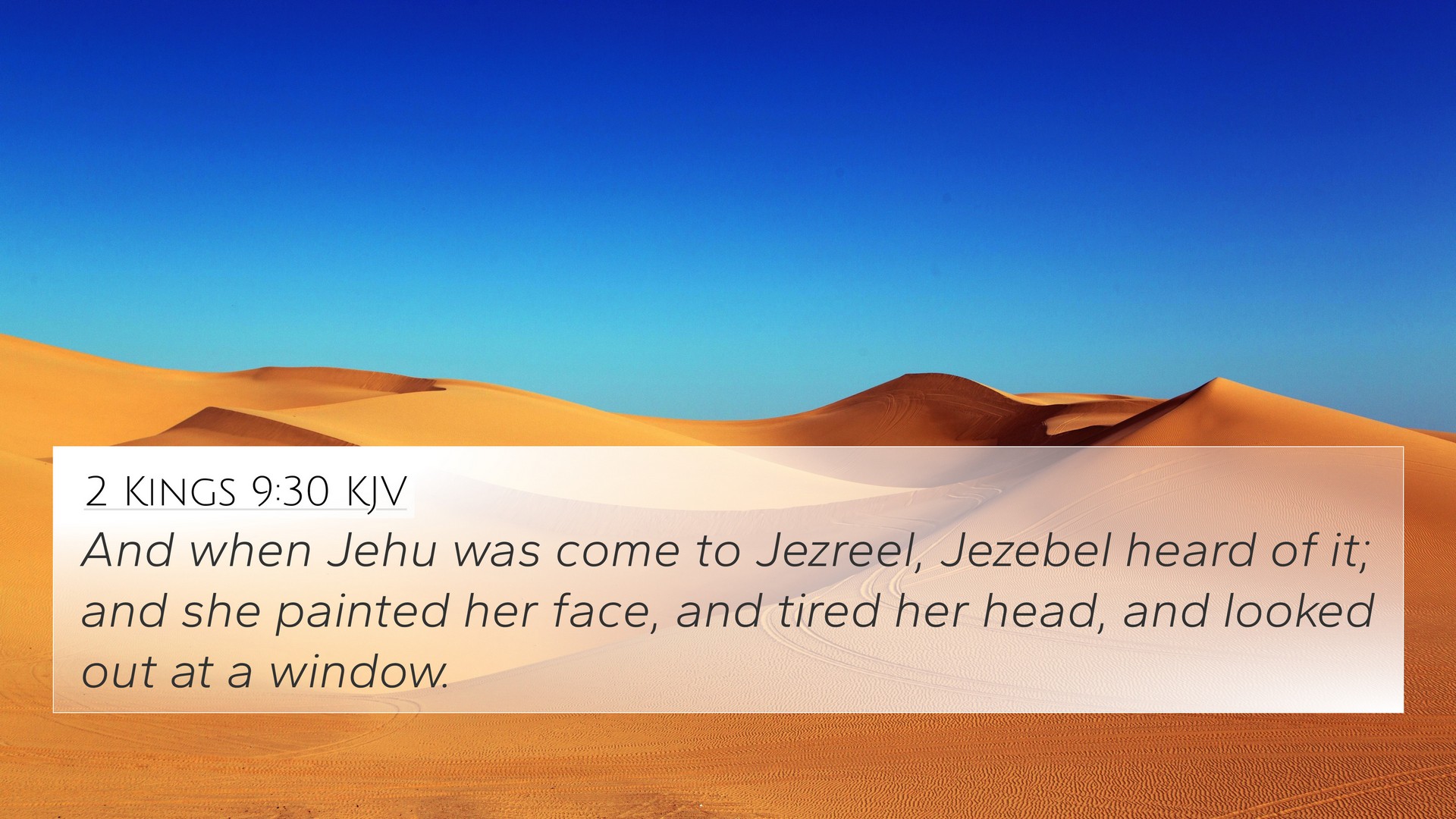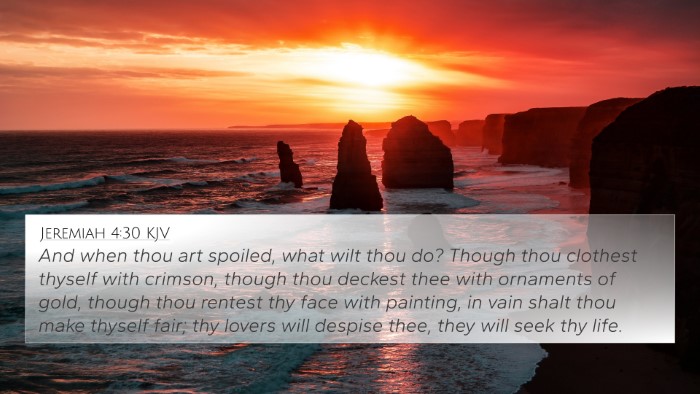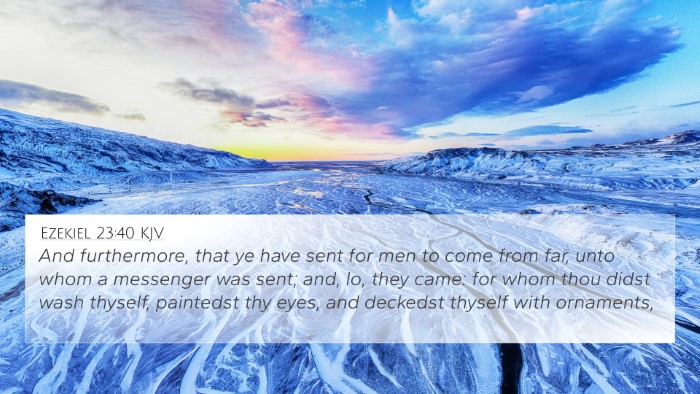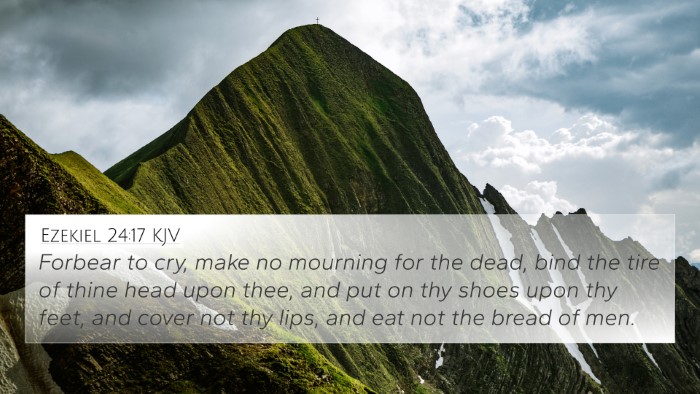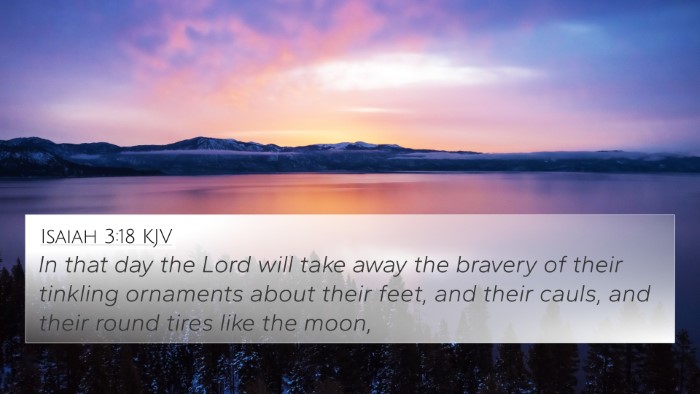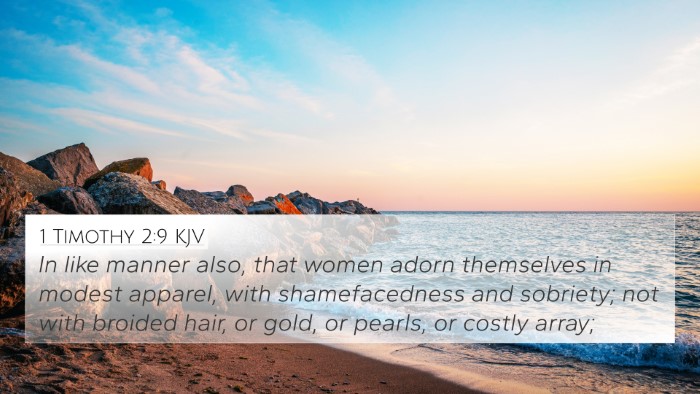Understanding 2 Kings 9:30
2 Kings 9:30 is a significant verse that carries various meanings and insights. This verse depicts the aftermath of an intense and life-changing moment for the kingdom of Israel. Below is a summarized interpretation of this verse, drawing insights from renowned public domain commentaries.
Verse Context
In this chapter, we witness the anointing of Jehu as king over Israel, a pivotal moment that sets the stage for significant changes in Israel's leadership and direction. The immediate context highlights Jehu's coming to power and the implications of his reign.
Verse Text
2 Kings 9:30 (KJV): "And when Jehu was come to Jezreel, Jezebel heard of it; and she painted her eyes, and tired her head, and looked out at a window."
Meaning and Interpretation
This verse illustrates Jezebel's reaction upon hearing of Jehu's arrival in Jezreel. It is filled with symbolic interpretations concerning her character, her arrogance, and the impending doom she faced.
Jezebel's Actions
- Painting Her Eyes: Commentaries, including those by Matthew Henry, suggest that this act was not merely vanity. It symbolizes her defiance and attempt to maintain her status, even in the face of her impending doom.
- Adorning Herself: Adam Clarke noted that Jezebel's preparations represent her desire to project strength. Instead of fleeing or showing vulnerability, she adopts a facade of control.
The Window
The act of looking out from a window can represent several ideas:
- Position of Power: Albert Barnes remarks that the window can symbolize a false sense of security and power, as she observes Jehu from a position of perceived dominance.
- Isolation: The window could also signify her isolation from reality, as she is blinded by her pride and stubbornness.
Thematic Connections in Scripture
2 Kings 9:30 can be cross-referenced with several themes and events in the Bible:
- 1 Kings 16:31-33: Details Jezebel’s introduction to Israel and her influence over King Ahab.
- 2 Kings 9:7-10: Jehu's commission to avenge the blood of the Lord's prophets and the judgment against the house of Ahab.
- Revelation 2:20: Highlights the Spirit of Jezebel as a metaphor for false prophets and moral corruption in the early Church.
- Proverbs 16:18: Speaks to pride preceding destruction, resonating with Jezebel's fate.
- James 4:6: Discusses God opposing the proud but giving grace to the humble, echoing Jezebel’s pride.
- Matthew 23:37: Jesus laments over Jerusalem's rejection of Him, paralleling Jezebel's rejection of prophetic warnings.
- Isaiah 47:10-11: Speaks of inevitable judgment against the one who believes in her own wisdom and strength.
Cross-Referencing Insights
This verse invites deeper study and reflection on themes such as pride, judgment, and divine sovereignty. By cross-referencing with related verses, one can uncover the rich tapestry of warning and judgment found throughout Scripture.
Tools for Understanding
To delve deeper into the connections between Bible verses, consider utilizing:
- Bible Concordance: A vital tool for finding specific terms and themes across the Bible.
- Bible Cross-reference Guide: Resources that provide insights into related scriptures.
- Cross-reference Bible Study: Methods to study scripture in a thematic, interconnected manner.
- Bible Reference Resources: Comprehensive materials available for enhancing understanding of biblical texts.
Conclusion
2 Kings 9:30 stands as a powerful reminder of the consequences of pride and defiance against God. The insights from public domain commentaries guide us in understanding not only the immediate context of this verse but also its broader implications in biblical studies.
Reflection
As believers, examining these connections and interpretations can deepen our understanding of God's Word and how historical events in Scripture still resonate with us today.
